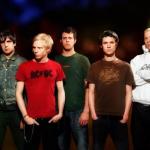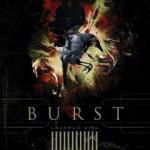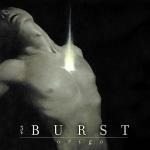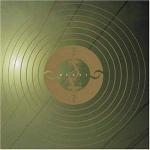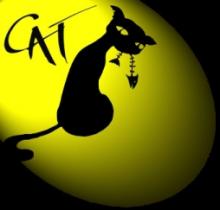Burst
The first real turning-point for the band, however, came in 1999. At this point Burst set out along the path which would lead to where they are today. The collaboration and chemistry between this line-up came to fruition in 2000, via the album Conquest: Writhe (released on vinyl by Putrid Filth Conspiracy, and on cd by Prank Records). It is in hindsight a rather strange album. When Rodrigo Alfaro of Putrid Filth first approached the band they didn´t in fact have enough material for a full length, which resulted in the re-recording of two previous demos, as well as two brand new songs. Despite the somewhat odd nature of the record, it still displays some of the trademark moods and ideas that have now come to be recognized as part of the typical Burst sound, and at the time it recieved a considerable amount of positive reviews from the press.
One might argue that that the first proper Burst album is the MCD In Coveting Ways, released by Chrome Saint Magnus. This was the first time that all five members contributed to the song-writing, now that everyone was comfortably and firmly seated in his role. Songs like "Scavenger" and "Black but Shining" still appear from time to time in their live-shows and hold up impressively to their newer material. Having now relocated to Gothenburg, it was recorded in Studio Fredman by Fredrik Reinedahl and Fredrik Nordström (At The Gates, Arch Enemy, Opeth), which resulted in a sound much more suited to the music than the previous rather thin productions. Musically the band took giant strides from where they had been on Conquest: Writhe and influences from a wide variety of genres were displayed. A succesful tour of Europe was done, as well as several gigs in Sweden and Norway.
Still without a proper recording contract the band soon started work on their next album, which would come to be called Prey on Life. The record saw the band continuing on their musical journey, while adding yet more layers to their creations. Once again recorded by Fredrik Reinedahl, this time in his studio Phlat Planet, it eventually lead to the band being signed to well-known extreme music label Relapse Records, and Prey on Life was released in 2003. Working in the studio without any time-limit, Burst were able to fully explore their visions in a way they had been unable to before, and this resulted in a highly dynamic album, ranging from the beautifully brittle passages of "Fourth Sun" to the psychedelically massive and heavy onslaught of "Rain". Upon its release it was very well recieved by metal media all over the world, and extensive touring of the United Kingdom, Europe and Scandinavia with bands such as the Dillinger Escape Plan, Mastodon, Poison the Well and Alchemist furthered the impact of the album.
During these tours, and in the time in between Burst once again started writing music. Determined to once more go far beyond anything they had done before, Origo started taking form. Expanding on the foundations laid on In Coveting Ways and Prey on Life, Origo takes the listener even further. Adding clean vocals and a host of new instruments, the album flows effortlessly from quiet melodic intricasies to thundering crescendos. Once again changing studio, the album was recorded in Music-a-Matic by Fredrik Reinedahl and Swedish studio-guru Henryk Lipp. It displays a more organic and direct sound, yet at times the album turns chillingly harsh and cold, as for instance on the eerie "Sever". Detailed and well-crafted, the band tread from progish instrumentals, to melodic black/death metal in a heartbeat, without ever losing track of their singular vision - that of taking the listener, as well as themselves, somewhere else...Quelle: http://www.burst.nuDiscografie2003 - Prey On Life
2005 - Origo
www


